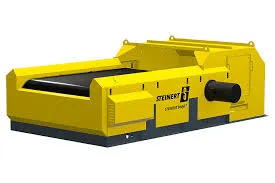

நவ் . 12, 2024 16:42 Back to list
The Importance of Industrial Scrap Shredders in Modern Recycling
In the rapidly evolving landscape of waste management and recycling, industrial scrap shredders play a pivotal role in ensuring that recyclable materials are processed efficiently and effectively. As industries shift toward sustainable practices, shredders have become essential tools in the recycling process, significantly contributing to reducing the environmental footprint of waste disposal.
Industrial scrap shredders are machines designed to reduce materials into smaller, manageable pieces. These machines come in various sizes and capabilities, capable of shredding anything from metals and plastics to cardboard and electronic waste. The primary function of these shredders is to minimize the size of waste materials, making it easier to transport and recycle them. By breaking down materials, they facilitate the extraction of valuable recyclables and enhance the overall efficiency of the recycling process.
One of the main benefits of using an industrial scrap shredder is its ability to improve safety in the workplace. Large scrap materials can pose significant risks to workers; they are often heavy, unwieldy, and difficult to handle. Shredding these materials reduces the risk of injury by transforming them into smaller, more manageable pieces. This is especially important in recycling facilities, where large volumes of scrap are processed daily.

Moreover, shredders enhance the quality of the material recycled. When scrap is shredded into uniform pieces, it allows for more efficient sorting and processing, ensuring that contaminants are removed more effectively. This leads to higher-quality end products, which are more valuable in the market. For instance, shredded metals can be more easily melted down and repurposed in manufacturing processes, leading to better resource recovery and less reliance on virgin materials.
The environmental benefits of industrial scrap shredders are significant as well. By facilitating the recycling of materials, shredder operations help divert waste from landfills. Reducing the amount of waste sent to landfills is crucial for minimizing greenhouse gas emissions and conserving natural resources. Each ton of recycled metal can save up to 1.5 tons of iron ore, which corresponds to less mining activity and lower energy consumption, thereby reducing carbon emissions.
Furthermore, the use of industrial scrap shredders aligns with the principles of the circular economy. This economic model promotes the continual use of resources by maximizing recycling and reusing materials. In a circular economy, the lifecycle of materials is extended, which not only conserves resources but also creates sustainable economic opportunities. Industrial scrap shredders are integral to this model, as they ensure that materials are efficiently processed and reintegrated into the production cycle.
In conclusion, industrial scrap shredders are essential components of modern recycling operations. They enhance safety, improve material quality, and support environmental sustainability by reducing waste and promoting resource recovery. As industries continue to prioritize sustainability, the role of these machines will only grow, marking a significant step towards a more responsible approach to waste management. Embracing the use of industrial scrap shredders not only aids in efficient recycling but also contributes to a healthier planet and a more sustainable future.
Latest news
Troubleshooting Common Eddy Separator Problems
NewsJul.04,2025
The Role of Metal Recycling Plants in Circular Economy
NewsJul.04,2025
The Impact of Recycling Line Pickers on Waste Management Costs
NewsJul.04,2025
Safety Features Every Metal Shredder Should Have
NewsJul.04,2025
How Industrial Shredders Improve Waste Management Systems
NewsJul.04,2025
How Cable Granulators Contribute to Sustainable Recycling
NewsJul.04,2025